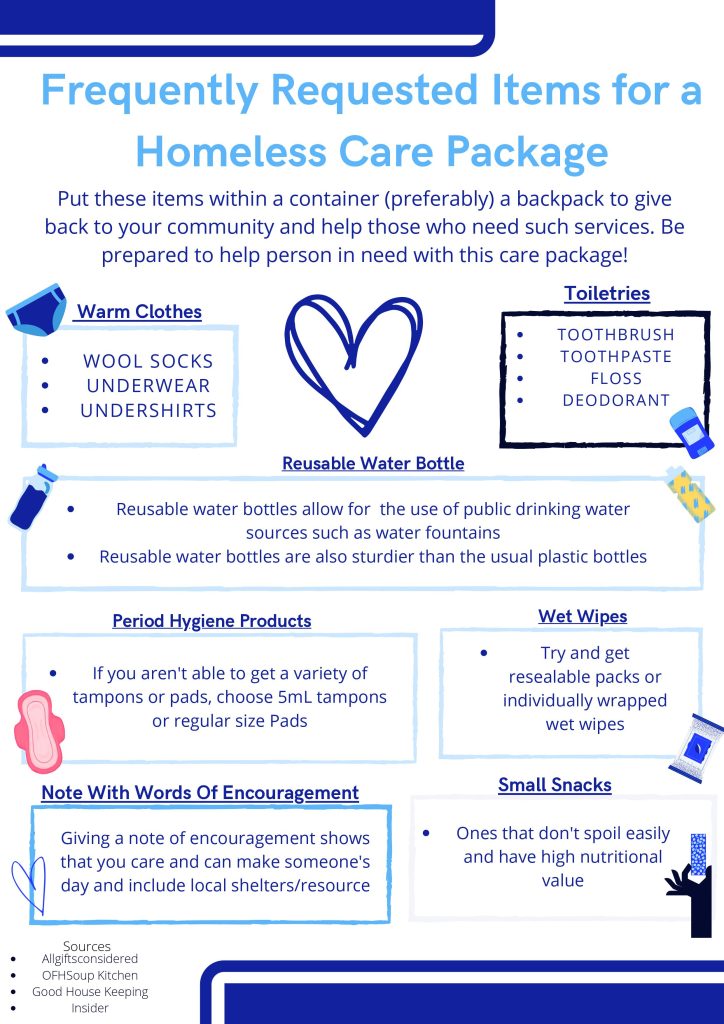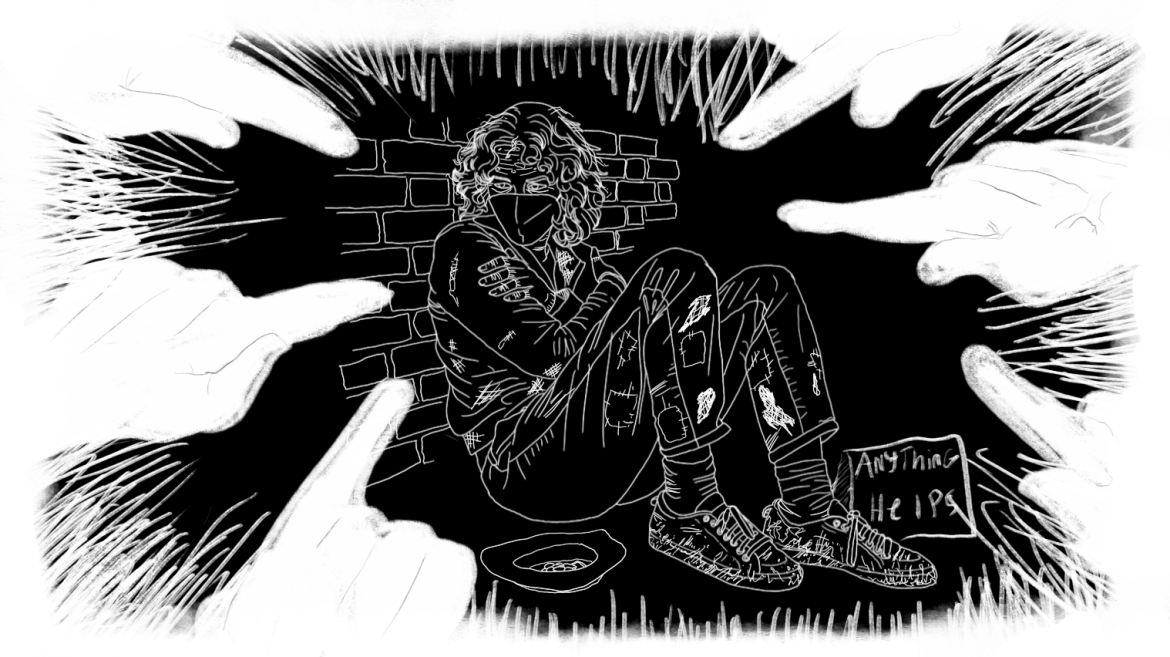A homeless person sits against a wall while being ridiculed as a social outcast due to their economic status. Conversing and volunteering with homeless people can sway negative biases toward said homeless people. “I think reaching out in the community and asking questions and having conversations, educating yourself and going in with an open mind and an open heart (is) the best way to (check one’s negative biases on homeless people),” Sparrow’s Nest Administrative Assistant Hannah Wise said. Illustration by Antonio Starks
While homelessness is a problem, many conflate homelessness and homeless people to both be problems to deal with.
The negative ideas associated with homeless people by the majority of society are problematic. From a local perspective, Athens has an immense homeless population, with the Athens Homeless Coalition having served 226 homeless families in 2020 and 2021 as of March 12, 2021.
Unlike common stereotypes, people who are homeless aren’t nuisances, bums or lazy by virtue of being homeless. The common prejudices held against them warp society’s perception of homeless people as being less than.
The Sparrow’s Nest, a local homeless shelter, helps clients receive proper documents, medical prescriptions and referrals to jobs and permanent housing options. According to Sparrow’s Nest Administrative Assistant Hannah Wise, the struggles faced by the homeless population of Athens-Clarke County are under-recognized.
“We’re dealing with a population that is underprivileged, underserved and that may have mental health issues (and) may have (an) addiction,” Wise said. “There’s a multitude of things that could be going on.”

An infographic lists frequently requested items for a ‘homeless care package.’ Illustrator Antonio Starks writes that while homelessness is an issue, homeless people themselves should be treated with empathy. “There are many practical ways for someone to help those who are homeless. Making care packages that have clothes, water and food, volunteering at or promoting local shelters or being an advocate for better treatment of homeless people are a few ways that contribute to homelessness relief,” Starks wrote. Graphic by Antonio Starks
When thinking or talking about homelessness, it is important to take into account all the factors that make a person homeless by listening to their stories or volunteering at a local shelter. When this doesn’t happen, homeless people can become dehumanized by society and the discrimination that occurs makes it difficult for homeless people to acquire proper care, thus furthering the problem of homelessness.
Additionally, the stereotypes society projects onto homeless people can affect laws by disproportionately discriminating against homeless people and essentially criminalizing the state of being homeless.
One such law is Austin, Texas’ Proposition B. According to austintexas.gov, this law makes it a criminal offense for anyone to sit, lie down or camp in public areas. It also prohibits the solicitation of money or other items of value at specific hours and locations.
“For some reason, (homeless people are) stigmatized, but I believe that’s why we’re here, to have these (conversations). We’re able to look past that and look at the human being and where their heart is.”
— Hannah Wise,
Sparrow’s Nest Administrative Assistant
“Anti-homeless policies target a range of activity related to homelessness, often interfering with vital activity like sleeping, eating and maintaining personal hygiene,” an article in the New York University Review on Law and Social Change stated.
According to Wise, conversing about and with homeless people requires more empathy.
“For some reason, (homeless people are) stigmatized, but I believe that’s why we’re here, to have these (conversations). We’re able to look past that and look at the human being and where their heart is,” Wise said. “That’s something I’m able to see every day and that’s what I encourage other people to do, as well.”
There are many practical ways for someone to help those who are homeless. Making care packages that have clothes, water and food, volunteering at or promoting local shelters or being an advocate for better treatment of homeless people are a few ways that contribute to homelessness relief.
When taking these steps, it is important to keep in mind that while it’s important to talk about homelessness, it’s equally important to take action.
Whether it be mental health issues, disabilities or unfair labor wages, there are many circumstances that create homelessness and not one of them deserves to be judged. Homeless people are simply people. They must be treated fairly and need to be accepted.
